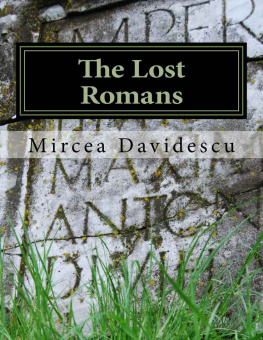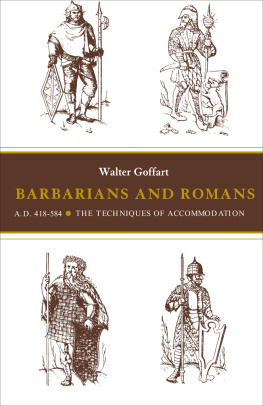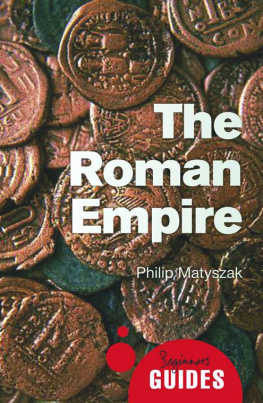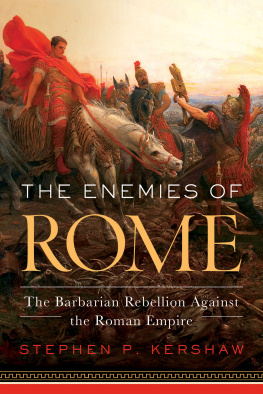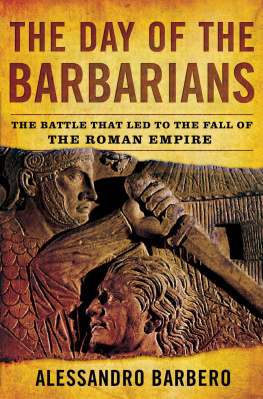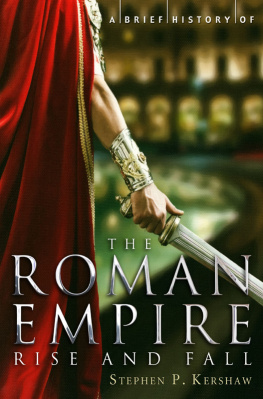D edicated to my grandfather and grandmother, George and Elena Ulieru, who taught me the value of history and humor.
PART 1 : THE HISTORY
1. THE ROMANIANS IN TEN PAGES OR LESS
Romania has always been on the fringes of Europe, whether we consider the Europe of the Roman Empire in antiquity, the Christian Europe of the Middle Ages, or even the modern European Union. Entire books could be written and indeed have been written, on Romanias special position in European history. Romania has somehow both been part of Europe and apart from Europe for almost two thousand years.
The Romanians are consequently perhaps the most misunderstood people in Eastern Europe. How are around 20 million people all but invisible to the modern world? For many in the Western world, Romania is (wrongly) thought of as one of those Slavic-speaking countries, its province of Transylvania is believed to exist only in fiction, while Bucharest (capital of Romania) and Budapest (capital of Hungary) are considered essentially synonymous. It is perhaps fitting that Vlad Dracula has become the poster boy for Romania. He is likewise misunderstood, most Western audiences only knowing of him from a 19 th century novel by Bram Stoker about the fictional vampire. Much in the same way, Romanians and Romania are, in the minds of Western observers, a product of nineteenth century Orientalism and mystification.
In order to gain a better understanding of what the Romanians are, and of what they are not, we must look at the beginnings of Romanian history. What the Romanians are (and whether they might be edible) is best clarified by knowing the ingredients that went into making them. The nineteenth century Romanian historian Mihai Koglniceanu was keenly aware that modern people are a product of history, which contributed to the preservation of our nationality. For what can better preserve it than its history, which shows us what we were, from whence we came, what we are, and what we will become. ( )
If the history of the Romanians were a simple and clear-cut affair then perhaps this question could be solved by one Wikipedia article; unfortunately, this is not the case. The origin of the Romanians has been shrouded in controversy for at least 150 years. To this day arguments continue on not only what contributed to the formation of the Romanians, but also on where the Romanians formed and even what they are today. Some of these arguments were started out of a genuine curiosity for clarifying this issue that perhaps has never been clear at all. Romanian history itself is mysterious enough, regarded by prominent historians as the most obscure corner of European history. ( )
While some genuinely wished to resolve the historical identity of the Romanians, others purposefully propagated the mystery for political purposes. Indeed, rather than hoping to clarify the issue, many who have raised the topic of the origin of the Romanians have only contributed to its mystification, manipulating facts and figures to fit pre-conceived and politically-expedient theories. The reasons for this are not hard to fathom: Romania more than doubled in size at the end of World War One, ( Sadly, historians from the countries on the losing end of this territorial exchange sought to discredit Romanias sovereignty over her new-found territories by turning Romanian history itself into the battlefield where they hoped (and still hope) to reclaim their lost territories.
These controversies however originate even before the end of World War One, most dating to the nineteenth century, a time when millions of Romanians in Austro-Hungary and Tsarist Russia were clamoring for self-determination, and when the governors and historians of these countries could see the inevitable end. Hungarians were worried about losing their province of Transylvania where Romanians were the uncontested ethnic majority. Seeing that modern circumstances supported Romanian ownership, Hungarian historians began to dig up the dead, sometimes literally. They argued that though Romanians were the majority of the population, the Hungarians were the first inhabitants of Transylvania, predating the Romanians in the region, and therefore it is rightfully theirs. To the Hungarians, the Romanians only came to Transylvania centuries after the Magyars were already settled, and the Romanians grew to their majority only through constant immigration. As such, from the Hungarian point-of-view, the Romanians usurped Transylvania from its rightful owner.
The controversy has remained alive to this day, in spite of its loss of any political relevance. It is hard to imagine another war between Romania and Hungary, both members of NATO and the European Union, let alone one where the deciding factor for territorial claims would be childish arguments of I was here first. Still, the polemic has gained a life of its own, and some Hungarians still argue for Hungarys enlargement on historic grounds at the expense of pretty much all of its neighbors (some of which, such as Slovakia, would be annexed whole). Thus, in many ways, there are still parties interested in continuing the confusion over the history and identity of the Romanians.
In order to clarify the origin of the Romanians one must become familiar with the defining features of the Romanian people and nation; after all, it is always better to know what to explain before one starts explaining. The story of the Romanians (or to your great grandfather: Rumanians) begins with their name. The term Romanian as well as Romania is derived from the ancient Romans, who in their native Latin called themselves Romanus . This makes the Romanians, along with the Romansch of Switzerland, the sole keepers of the ancient Roman name. ( ) The name is the most evident reminder of a Roman origin of the Romanians, who must descend from Roman colonists in southeastern Europe, and it seems likely the ancestors of the Romanians took up the Roman name when they were still in the Roman Empire. Though the empire collapsed, the Romanians must have preserved the name to distinguish themselves from the surrounding non-Latin barbarians.
The term Romania has an extensive history. It first appeared in the fourth century, during the reign of Constantine the Great, as the name of the entire Roman Empire. ( ) Secondly, a more defined frontier emerged in the second and third century, separating the barbarians ( Barbari ) from the Romans ( Romani ). Thus, the Roman Empire came to be known as Romania , while the Barbaricum came to denote anything beyond Roman authority. It seems evident that the Romanians must have been within the Roman Empire at least until Caracallas proclamation in order for them to adopt the Roman name as a general ethnonym.
Romania was for a long time only loosely, if at all, associated with the Romanians. For centuries it continued to be associated with the Eastern Roman (Byzantine) Empire, many Greeks referring to themselves as Romans ( Rhomaioi ) up until the nineteenth century. ( ) So while the Romanians continued to refer to themselves by Roman name, and continued to call their country land of Romans ara Romneasc no one else followed suit.
Most foreign authors preferred to use the term Wallachian or Vlach when referring to the Romanians. Though the medieval and renaissance authors were aware of the Latin character of the Romanians, and would easily have found an explanation for the term Romanian had it been used, they had no ready explanation for the name Vlach, and thus had to invent one. Among the first erroneous theories of Romanian history was one which suggested that their name derived a mythical Roman general named Flaccus , who lead the Romanians into their present homeland. It is telling that the leader of the Vlachs was explicitly stated to be a Roman general, a tacit acknowledgement of the Roman origin of the Romanians. ( ) Aside from indicating that historical writers were aware of the Latin character of the Romanians, today we know that the entire Flaccus legend is nonsense.

